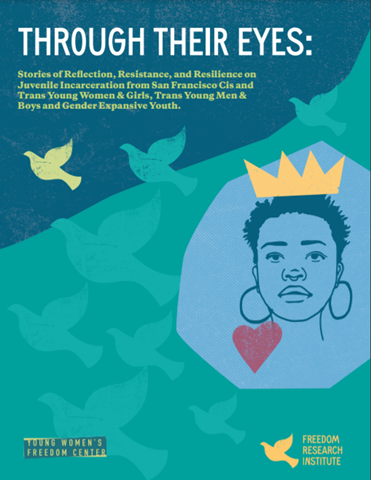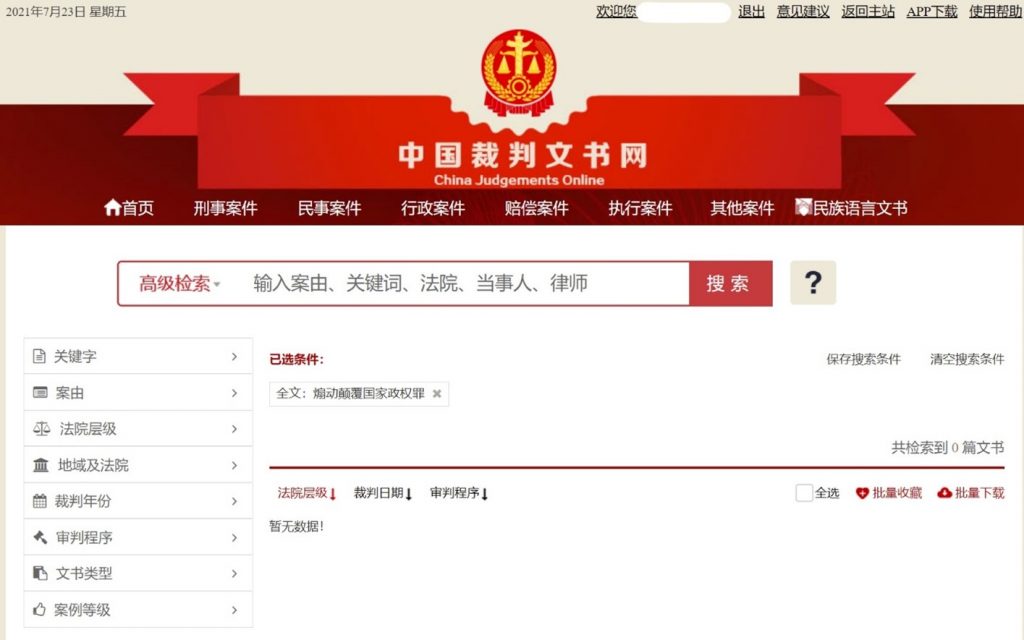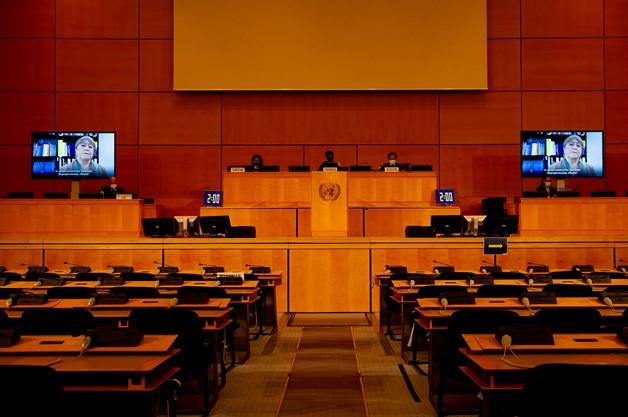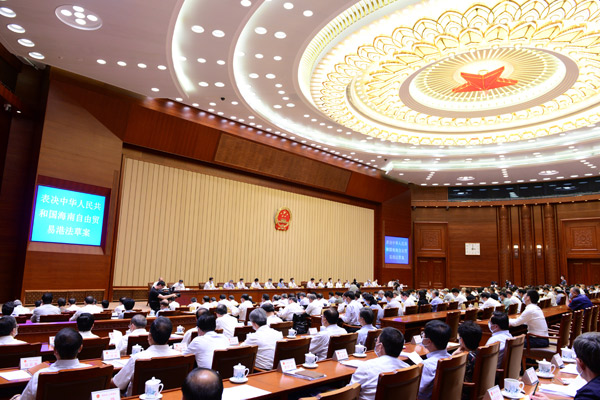EVENTS
Sister Cities in the Crosshairs

In June 1979, San Francisco mayor and future US senator Dianne Feinstein traveled to Shanghai with a delegation of San Francisco businesspeople. They were met by Shanghai mayor Wang Daohan. Together the two mayors signed an agreement to establish a sister city relationship between Shanghai and San Francisco, the first such relationship between cities in the two countries.
In the aftermath of the events of June 4, 1989, several sister cities, including New York which had a sister city relationship with Beijing, suspended or cancelled their relationships with Chinese partners; more recently, these relationships have not been impacted by alleged human rights abuses in China. That may change.
In 2004, more than 120 relationships linking US cities and states with Chinese partners had been established. By the middle of 2019, 277 such relationships had been formed, according to Chinese ambassador Cui Tiankai. While these relationships have for the most part focused on economic and cultural exchanges, there are signs that some US cities are beginning to explore the potential for human rights advocacy using these relationships.
Platforms for Activism
The Dui Hua Foundation has been a pioneer in advocating the use of sister city relationships as platforms for human rights activism. In 2004, the foundation compiled a list of 83 US cities and states that had sister relationships with Chinese counterparts. It sent letters to city representatives offering to provide names of political prisoners held in prisons in their partner sister cities or provinces.
Only one city – East Lansing in Michigan – replied, offering to intervene on behalf of labor activists jailed in its sister city, Sanming Municipality in Fujian Province. The intervention was a success. All of the labor activists were granted early release.
In February 2021, the mayor of New Haven, Connecticut, sent a letter to the mayor of its Chinese sister city Changsha, Hunan, asking for the release of three human rights activists: Cheng Yuan (程渊), Liu Dazhi (刘大志), and Wu Gejianxiong (吴葛健雄), who were sentenced to five years, two years, and three years in prison for subversion, respectively. The New Haven mayor made clear that how the dissidents are treated will figure in his city’s reassessment of its relationship with Changsha.
US cities are not alone in reconsidering their relationships with Chinese partners. In Sweden, four cities have terminated their “twinning relationships” with Chinese partners over the past two years over human rights violations and threatening remarks made by China’s wolf-warrior ambassador Gui Congyou. (Terminated relationships include those between Gothenburg and Shanghai, Linköping and Guangzhou, Luleå and Xian, and Västerås and Jinan). On July 21, 2021, the city of Arnhem in the Netherlands approved a proposal severing its relationship with Wuhan, citing the Chinese government’s human rights violations and its treatment of the Uyghur population.
Chinese cities have terminated sister city relationships with foreign cities as well. In 2012, Nanjing suspended its sister city relationship with Nagoya, Japan, after the Japanese mayor denied that Japanese troops had carried out a massacre in the Chinese city. In 2020, Shanghai terminated its relationship with Prague, Czech Republic, over efforts by Prague’s mayor to improve relations with Taiwan. The termination came one day after Taipei mayor Ko Wen-je visited Prague following the formal establishment of a sister city relationship.
Troubled by the rise in sister city and sister state relationships, members in the US Congress have begun paying more attention to such ties. This suspicion is often attributed to comments first made in February 2020 by then-Secretary of State Mike Pompeo. By November 2020, Senator Blackburn (R-Tenn) had picked up the call, introducing the Sister City Transparency Act with three other Republican senators. In March 2021, Blackburn and six other senators, all Republican, reintroduced the Sister City Transparency Act. This was folded into the 2,400-page Innovation and Competition Act (ICA), passed by the Senate in June 2021. If passed into law, the ICA will increase the scrutiny of sister city and sister state relationships.

ICA Provisions
Section 2513 of the ICA – also referred to as the Sister City Transparency Act – calls for the study of sister city partnerships with communities “in countries with significant public sector corruption.” Under this section of the bill, the US Comptroller General must conduct a study of sister city activities if the partnership is recognized by Sister Cities International, is operational within the United States, and if the country scored 45 or less on Transparency International’s 2019 Corruption Perceptions Index.
The study outlined in the ICA requires the Comptroller General to identify the criteria foreign communities use to choose sister sites, as well as the activities, educational and economic outcomes, and new information resulting from these relationships. Furthermore, investigators are tasked with clarifying how US communities safeguard freedom of expression in sister city partnerships and how they mitigate risks of espionage and economic coercion. Investigators would also be required to assess to what extent:
- US sister communities can ensure transparency in contracts and activities;
- Partnerships make the United States vulnerable to malign market practices;
- Partnerships involve educational arrangements that diminish freedom of expression;
- Partnerships allow foreign nationals access to local institutions;
- Foreign communities can use these partnerships to realize strategic objectives not conducive to the United States’ interests;
- Partnerships enable malign activities globally, including human rights abuses and academic or industrial espionage;
- US communities seek to mitigate foreign nations from exploiting visa programs related to these partnerships.
Following the assessment, the ICA mandates a review of activities conducted within sister city partnerships, a comparison of how activities differ between sister cities, and best practices for sister cities.
Politics and Pushback
Sister city relationships will likely be further politicized as the Act moves through Congress, with human rights and Taiwan serving as flashpoints. On August 3, Newark, New Jersey, established sister city relations with Taoyuan City, Taiwan, joining at least 30 other US territories that maintain relations with territories in both mainland China and Taiwan, including Seattle, Houston, Miami, and San Francisco. However, San Francisco may have further contributed to suspicion of sister cities due to the alleged involvement of suspected Chinese spy Fang Fang (also called Christine) in helping coordinate discussions from 2011-2015 about establishing a sister-city relationship between Fremont and a Chinese location.
Despite the case of Fang Fang, there has been pushback to sister city suspicion, notably from Senator Blackburn’s home state. Following Blackburn’s comments, Chattanooga mayor Andy Berke said he wasn’t aware of any evidence that sister cities are working with the Chinese government. In December 2020, Chattanooga Sister City President Karen Claypool published an open letter condemning Blackburn’s remarks as unfounded and xenophobic. Claypool also encouraged Blackburn to participate in the program.
While US-China communication decayed as COVID-19 raged, sister cities utilized their relationships. Tempe Sister Cities officials hosted a virtual exchange with sister city Zhenjiang, Jiangsu. In May 2020, Leshan, Sichuan, sent N95 masks to sister city Gilbert, Arizona, and New Haven received 10,000 surgical masks from Changsha in July 2021. The Washington Post found a link between US cities’ ability to source goods from China during the pandemic and having a twinning relationship with a Chinese province, stating that these relationships “more than doubled the monetary amount of medical donations from that province.”

Dui Hua’s work on religious freedom has been a source of goodwill and community engagement in the organization’s more than 20-year history. On August 4, Executive Director John Kamm’s ongoing relationship with the US-China Catholic Association turned out to be a blessing.
On August 8, Executive Director John Kamm participated in a panel at the 28th International Conference of the US-China Catholic Association at the invitation of Father Michael Agliardo. At the conference, which took place at Santa Clara University, Kamm spoke on the topic of “Serving Society in China.” He recounted Dui Hua’s approach to advocacy and the principle of respectful exchange through dialogue.
On the Wednesday preceding the conference, Dui Hua received Father Agliardo and Archbishop Savio Hon at Dui Hua’s office. The two men, Kamm, and Dui Hua staff discussed their experiences in Hong Kong, the church’s presence in China, and Dui Hua’s work on religious freedom. The two men blessed The Dui Hua Foundation’s new office. It was a gesture of good tiding and hope in a challenging climate.
Relationships with religious communities can lead to help with advocacy, increased awareness for cases, participation in outreach events, and even the release of prisoners. This August outreach was also a reminder that the cause of human rights can unite cultures and faiths to work for universal values.
EXCHANGES
Exchanges is a feature that explores Dui Hua’s expert exchanges and dialogues
“If we invested time, money, care, and love, [then] we would have good outcomes.”

Around the world, publics are rethinking law enforcement as the long-term effects of policies become clearer. But are there better ways to help juveniles stay out of the criminal system? Experts from the International Symposium on Girls in Conflict with the Law (GICL) spoke about how community-based approaches can help make a better justice system.

San Francisco Superior Court Judge Susan Breall advocates for an approach that acknowledges that girl crime is often preceded by neglect, abuse, and/or experiences in the welfare system. “I think there needs to be a survivor-centered approach to each young woman and a team approach. I’m talking about a caseworker that can devote a lot of time to an individualized plan for each young woman, a mental health provider, someone from the community who can provide the young woman an internship and support services.” Breall identified the Young Women’s Freedom Center as an example of an organization whose operations take into account “who this young woman is, where she came from, and why she’s running in the first place.”
The need to invest in community services emerged throughout the GICL. Christa Big Canoe, of the Aboriginal Legal Services of Toronto said, “If we invested time, money, care, and love, [then] we would have good outcomes. The resilience of Indigenous people is largely due to women within the communities, as the caregivers, as the life providers, as the people that hold solutions to a number of these issues.” Big Canoe stressed the role of culture and family in the rehabilitative process. “The more we tap into these things and learn about them, the more we can speak about them comprehensively as a community, pushing with public will for lawmakers and people to let Indigenous people create their own passive solution.”
The stigma around justice-involved girls can also turn the community into a force for harm. Nafula Wafula of the Commonwealth Youth Council spoke about how girls sent to remand homes return to their communities with little more than a certificate indicating disciplinary issues. “There’s a lot of abuse from the community, and many times, their families are not well-equipped to be able to take them back,” Wafula said. These girls are “going back to the same communities and the same systems and structures that put them in these scenarios or situations in the first place. Therefore, it ends up becoming a cycle.” Sometimes, girl offenders are turned away from schools when they try to reenter the education system.

Wafula shared the positive example of the Kamae Borstal institution, where girl offenders form their own support groups to discuss problems they face and develop skills to aid in reintegration. “By strengthening support for grassroots or community-based organizations that work with girls, we create systems where community-based approaches that work can be taken and replicated.”
Dr. Jiang Jihai, Director of Juvenile Offender Office of Research Office of the Supreme People’s Court spoke about the value of support services to juvenile offenders: “I think it’s proper for the courts to provide the necessary advisors to relevant government agencies or departments to improve the whole of society, a whole of government/governance approach.” He explained that government agencies may place minor offenders in special correctional schools providing moral, legal, and mental health services, along with vocational training, calling such measures “natural extensions of juvenile justice work.”
Community-based solutions are increasingly seen as alternatives to costly, harmful systems of detention that leech resources and morale from local communities. Social worker Michelle De Young echoed the need to not just re-think our justice system but also how we engage the community: “I think a big thing that we can all do is to educate ourselves. There’s such an opportunity and wealth of knowledge from people that know what they’re talking about. Get involved in your local community, talk to people, see how you can help, and really engage in dialogue. There’s power in dialogue.”
To learn more about the panelists, watch their individual webinars and read a full list of recommendations visit girlsjustice.org.
PUBLICATIONS ROUND UP
Featured: Human Rights Journal, July 26, 2021: China: All State Security Judgments Purged from Supreme Court Site

In a blow to judicial transparency, all judgments and judicial decisions for endangering state security (ESS) cases, including those for sentence reduction, have been purged from the Supreme People’s Court (SPC) online judgment website China Judgements Online (CJO, 中国裁判文书网).
See also: Human Rights Journal, July 28, 2021: Dueling Statements, and Visions, at UN Human Rights Council

The United Nations Human Rights Council is an ideological battleground between China and its allies and the United States and its allies. Its 47th regular session took place from June 21 to July 14, 2021 in Geneva. At the start of the session, Permanent Representative of Canada to the United Nations (UN) in Geneva Leslie E. Norton delivered the Joint Statement on the Human Rights Situation in Xinjiang on behalf of 44 countries. In response, Belarus delivered a joint statement from 69 countries refuting criticisms against China and urging non-interference.
See also: Human Rights Journal, July 7, 2021: China’s National People’s Congress May Expand Legal Aid in Death Penalty Cases

China’s National People’s Congress is considering a new Legal Aid Law. Among its many provisions, Article 24 of the new law would extend access to legal aid to condemned defendants during final death penalty case review at the Supreme People’s Court.
JOHN KAMM REMEMBERS
John Kamm Remembers is a feature that explores Kamm’s human rights advocacy prior to and since Dui Hua’s establishment in 1999.
Life and Death in Guangzhou

From my first trip to China in January 1976 to the present day, I have made a habit of browsing bookstores in the mainland cities that I visit. I was shown the door at the Shanghai Xinhua Bookstore when I ventured into the section selling internal (neibu 内部) books for cadres in January 1976. Later I sought out rare volumes in small bookstores; the books were left behind when expatriates abandoned their libraries in the years after 1949. In Tianjin, I was mobbed by a curious crowd when I visited the Xinhua Bookstore to buy technical books on inorganic chemistry to better inform my business selling chemicals in China.
Not surprisingly, Beijing has the largest number of bookstores in China. On Wangfujing there were, in addition to the huge Xin Hua Bookstore, two shops selling used books, and there were shops selling such books in Dongtan and Xidan, close to Democracy Wall.
After I began my human rights work in 1990, I frequented bookstores run by the Supreme People’s Procuratorate near the Supreme People’s Court and, further afield, the Ministry of Justice’s bookstore not far from the Asian Games Village. In the early 1990s these stores sold neibu books that contained the names of political prisoners in collections of judgments from various provincial courts as well as more general volumes on the criminal law. I once asked an interlocutor if it was safe to bring such books out of China. He advised me to make sure I saved the receipts!
In June 1994, I purchased Contemporary China’s Judicial Work at the Xinhua Bookstore on Wangfujing. It was a two-volume set published at the end of 1993, so the information contained therein was fresh. It disclosed much useful information on prisoners convicted of counterrevolutionary crimes, including Fu Bin (傅彬), a worker from Taiyuan in Shanxi Province. Fu was one of one 7,123 people convicted of counterrevolution from 1980 to 1984. He was sentenced to 15 years in prison for counterrevolutionary propaganda and incitement in 1984, a fact not previously reported.
The book also provided information on four individuals convicted of the counterrevolutionary crime of espionage. Two were Hong Kong residents. The four individuals were:
- Zhou Guokui (周国骙), a 63-year-old resident of Hong Kong who had emigrated from Shanghai in 1983. He was sentenced to 15 years in prison and five years deprivation of political rights for espionage by the Shanghai Intermediate People’s Court on October 13, 1987.
- Li Jiaqi (李家棋), sentenced to life imprisonment for espionage on June 15, 1983, by the Beijing Intermediate People’s Court.
- Hong Kong resident Qin Hanbiao (秦汉标) and Guangzhou resident Qin Yaochi (秦耀池), a supervisor at a military warehouse in Huangpu District, Guangzhou. According to the book, both men were sentenced to life in prison in 1983 for espionage.
As it turns out, the story of the cases of Qin Hanbiao and Qin Yaochi were far more troubling. They came very close to being executed. I began asking my Guangdong interlocutor about the two men not long after I found their names. Gradually I obtained information that gave a fuller picture of what had happened to Qin Hanbiao. Little information was found on Qin Yaoqi as he had been sent to Xinjiang to serve his sentence, a common practice in the early 1980s.
Qin Hanbiao was born in 1950 and he legally emigrated to Hong Kong in 1979. On May 10, 1983, the two Qins were detained for collecting and sending information on Chinese military units and militia to Taiwan. They were formally charged on May 30, 1983 and tried by the Guangzhou Intermediate People’s Court on September 10, 1983. They were found guilty and sentenced to death; the appeal was rejected by the Guangdong High Court on September 23, 1983. Since all death sentences for counterrevolution were required to be reviewed by the Supreme People’s Court under regulations that took effect around the time of their trials, the judgement was referred to China’s highest court for final review.
The Supreme People’s Court ruled that the offences were not serious enough to warrant the death sentence. The judgment was overturned. The Guangzhou Intermediate Court retried the men in October 1983. They were found guilty and sentenced to life in prison.
The trials in Guangdong took place at the beginning of China’s first “Strike Hard Campaign” against criminal activities that began in August 1983. The campaign was ordered and overseen by China’s supreme leader Deng Xiaoping. According to a rumor making the rounds in Guangzhou, Deng had been traveling around the countryside with a convoy of officials and bodyguards when they came across a fight between two gangs. The gangs turned on the convoy. Although the gangs were beaten back, Deng was furious and ordered all of the gang members to be executed.
China’s first “Strike Hard Campaign” lasted until January 1987. During a period of more than three years, 197,000 criminal groups were suppressed, 1.8 million people were arrested, 321,000 were sentenced to re-education through labor, and 24,000 were sentenced to death. In the waning months of 1983, 10,000 people were executed, 1,000 in Guangdong Province alone. Execution posters, with their distinctive red checks indicating that the execution had taken place, could be seen all over Guangzhou. Some of those executed had been convicted of counterrevolution.

Two of those executed for counterrevolution were young men from Hong Kong, He Enjie (何恩杰) and Lin Zerong (林泽荣). Shortly before the Spring 1983 trade fair that I attended, they had taken a room at the Guangzhou Hotel on Haizhu Square where trade fair attendees from Hong Kong and Macau were housed. The two young men unfurled a long banner denouncing the Chinese Communist Party and hung it outside the window of their hotel room. They were intercepted on their way fleeing to the train station by public security officers, arrested, subsequently tried and convicted of counterrevolutionary propaganda and incitement, and sentenced to death. The judgement was sent to the Supreme People’s Court for review. The court confirmed the execution, and it was carried out on September 6, 1983, four days before the two Qins were sentenced to death.

Hong Kong people were outraged by the execution of He and Lin. Their anger probably played a role in the decision not to execute the Qins. No Hong Kong residents have been executed for political crimes since the execution of He and Li in 1983.
After his sentencing, Qin Hanbiao was sent to Jiguangkuang Prison in Sihui County to serve his sentence. Qin Yaoqi was shipped off to Xinjiang.
I was told by my Guangdong interlocutor that, because of his “good behavior,” Qin Hanbiao’s life sentence was commuted to a fixed term sentence of 20 years in prison in March 1986. In January 1990 this sentence was reduced by 18 months. I continued to send appeals to the Guangdong prison authorities. Qin’s sentence was reduced by two years in February 1993, one year in October 1994, and two years in January 1997. He was released from prison on August 24, 1999, four months after Dui Hua was established.
I kept the Hong Kong government advised as information came to hand. Neither they nor I had contact with Qin Hanbiao, but I was informed by the Hong Kong government’s political advisor that contact had been made with his wife. As was often the case with political prisoners sentenced to long prison terms, she had divorced him and remarried, thinking she’d never see him again.
